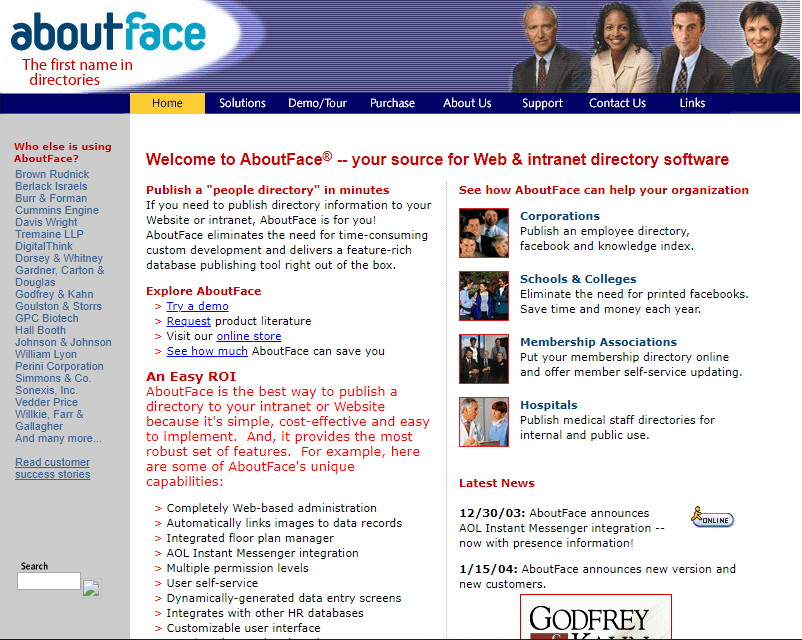Uncategorized • 27 min read
When most people talk about affiliate marketing, they usually talk about everything that goes great – the partnership that drove a million dollars in sales, the working relationship that turned into a lifelong friendship, stuff like that.
And as a team that’s been loving the affiliate space for many years, we can relate. Most aspects of this world are pretty great, and we’ve seen incredible results by tapping into our partners’ audiences.
But we’ve also seen some deals go south and cause actual business damage, so we think it’s important to speak up about it, so you can make sure your affiliate program is as bullet-proof as possible. We want to give you affiliate marketing tips on which deals to take and which deals to avoid.
To do that, we convinced our rock star lead affiliate manager, Gabrielle Hafalia, to share more of her secrets. As we’ve said before, Gabbi has been instrumental to the success of our clients’ 7 figure launches. She’s gained a ton of experience, and she thankfully agreed to share it with us today.

Ready for some practical knowledge bombs? Keep reading.
Affiliate Marketing Tips:
The Costs of the Wrong Affiliate Deal
“There are a lot of back end issues that can happen when it comes to affiliates you don’t know much about,” Gabbi said.
“If an affiliate you don’t really know starts sending you traffic, it depends on how they’re promoting, and if they’re running really bad traffic or Facebook ads, they can get your domain banned,” she said.
In 2013, for example, the New York Times reported that, “Two affiliate marketers based in California… pleaded guilty to defrauding eBay of at least $20 million in a scheme involving… cookie stuffing.”
But what are the warning signs that scream “run for the hills!”?
How to Know Which Affiliate Deals to Avoid
Thankfully, the warning signs are easier to notice than you might think. You want to be sure you are following these marketing affiliate tips on deals to avoid.
Avoid Affiliate Partners that No One in Your Network Knows
“You don’t crack deals with people you don’t know, but if you don’t know them, and a bunch of your partners know them, it’s kinda like you know them,” Gabbi said.
So if someone approaches you and you don’t know them, but you think there could be a potential, ask around in your network to see if anyone can vouch for this affiliate.
Avoid Affiliate Partners that Have a Sketchy Website and Social Media Presence
“If someone wants to make a huge deal and they have a sketchy website or no social presence, it might not be the best deal,” Gabbi told us.
“If someone comes to you and says, ‘I will send 50,000 click because I can drive that much traffic,’ or ‘I can guarantee $10,000 worth in sales in a month,’ how do I know you’re even legitimate? I can’t find you online, none of my existing affiliates know who you are, and you come to me giving me this information, you’re not giving me enough information to be able to trust you,” she said.
What would you have found if you logged into Facebook.com on August 5, 2004, before it was actually Facebook? This design might have worked back then, but today it might be cause for suspicion.

Source: Internet Archive
Avoid Affiliate Partners that Can’t Prove Their Claims
If an affiliate approaches you and no one in your network knows them, but this still looks like someone you want to work with, ask for any type of proof they can give you that they can deliver on their promises.
Plus, check them out online to see if who they interact with and how, where they’ve been featured, who has endorsed them, etc.
If you feel confident that this could be a legit partner, start with a small, low-risk deal. Don’t jump straight to the premium ones that can make a big impact, so you don’t risk a negative impact.
But mostly, focus on learning how to identify the really great affiliate opportunities.
How to Identify Affiliate Deals that are Worth Fighting For
Here are Gabbi’s affiliate marketing tips for identifying the kind of deals that worth an extra effort to land.
Fight for Affiliate Deals Your Other Partners Can Vouch For
By this point, you know that if you don’t know a potential partner, you need to ask your other partners if anyone knows them or know someone who knows them.
“If one of your partners say they can vouch for them, you understand it’s not a random scammer on the Internet, but a potential partner with a lot of room for growth in both ways,” Gabbi said, but recommended you dig even deeper.
Fight for Affiliate Deals with a Perfect Audience Match
“Relatedness of your product to their audience or niche is important. I’m not going to strike a deal on keto books with someone who’s targeting vegetarians,” Gabbi said.
She added that, “a lot of that comes down to stalking them online. One of the really important things is you have to do your own research, because if you go to someone who happens to be vegan or vegetarian and say, ‘I have this keto book,’ that’s major oversight on your part. It’s up to you to look for partners who would be the best fit for this offer, and this is why you have a CRM with notes, and it comes down to knowing your partners and knowing them pretty well.”
For example, when Omaze partnered with celebrity couple Kristen Bell and Dax Shepard to help raise money for underserved school students, they knew the couple had a track record of promoting social causes to millions of fans.
While wearing matching sweaters is not always a requirement, something else is:
Fight for Affiliate Deals that Can Get You in Front of Large, High Quality Audiences
To work as an affiliate with Gabbi, you need to have an email list of at least 500,000 subscribers, but she’s flexible if you can show her the value of a smaller list.
“The person with a million emails might have bought it from someone else, but the person with 300,000 could have a list of all buyers coming from a front end direct to sale,” she said.
List composition and segmentation are key, she said. “Knowing how their list is comprised, knowing if it’s all buyers, if they bought their list or built it on their own, if they built it organically or through Facebook ads,” she said.
BTW, with 71% of US businesses now using Instagram, the platform is quickly becoming one of the go to sources of influencer and affiliate marketing sales and traffic. Get ready to get a double dose of brand awareness, traffic, and sales with Instagram affiliate marketing!
Wondering which option is better?
“For the most part, organic subscribers tend to be more engaged, but they’re not necessarily buyers, because they’re used to getting a lot of information, which they can read on the blog for free. Buyers are used to buying, and at the end of the day, we’re trying to sell stuff,” Gabbi said.
Fight for Affiliate Deals with Partners You Love Working With
“The affiliate deals you’ll want to fight for are with people you like working with and you consistently work with – your super affiliates that mail for you consistently, send you introductions, you send them introductions, and they’re fun to work with and they keep their promises to you, and you do the same, and they become your friends. These are the best deals to fight for,” Gabbi concluded.
What to Do When an Affiliate Deal You Fought for Goes South
Sometimes, despite our best efforts to only close deals that have high chances for success, some deals don’t work out. But those deals can also be turned into opportunities to build trust with your affiliates if you handle them well.
Reach Out to Affiliates Whose Mailings are Failing
You might want to spend all your time on the affiliates that make you the most money, but according to Gabbi, “the worst thing is to go blank” when a deal doesn’t work.
“You want to be there for them,” she said, so you can rebuild the trust and turn it into an opportunity to deepen your relationship. Yes, you might have lost expected revenue on this deal, but if you show up and help them overcome this current hurdle, you could end up earning more in the long term.
How to Help Your Affiliates When Deals Fail
“Let’s say you worked hard to onboard a specific affiliate, and they mail it and it doesn’t work. Their commission is dramatically lower than what they’d like to see,” Gabbi said, suggesting that you look at the positive.
“It’s important they test it, so they know it doesn’t work, and it works for them because it shows them their people don’t like this type of product, because they know to avoid it long term,” she said.
But it doesn’t mean you’re off the hook from taking action.
“The way you overcome it is being upfront and honest with them. It’s always important to know their expectations beforehand. If I see their numbers, and they’re 3 times below what they expected to make, I reach out and say, ‘Let’s talk about it and let’s talk about why,'” she said.
Then, “if it’s a very structured deal, like in the scenario where you guarantee $2 and up to 10,000$, if they make below that, you pay them the difference. If it’s a less structured deal, get on the phone and comfort them, and say, ‘Now I know I won’t send you anything like this, but would love to continue to work with you and only send you offers that make money, and thanks for trying,'” Gabbi said.
Not Every Affiliate Deal is Worth Fighting For
If your affiliate program is new, it’s easy to get excited and onboard any affiliate who’s willing to work with you. You get to feel that you’re making progress, and you get to show your CEO that you’re making progress.
But not every affiliate is going to be a good fit for you, and not every affiliate is going to be legitimate. So, consider today’s guide your shortcut to building a healthy affiliate program. Why make mistakes that others have already made for you?
Keep a list of must haves for every affiliate partnership and get really clear with your team on which types of affiliates they need to say no to. It’s not going to be easy at first, but using these affiliate marketing tips and seeing the growth coming from the right affiliates, and the relationships that keep building between your team members and your partners, you’ll know it was worth the effort.

Dunder Kasino Kein Einzahlungsbonus Quick Hit Erfahrungen via 250, 120 Bonus Spiele, Zum Untersuchung

